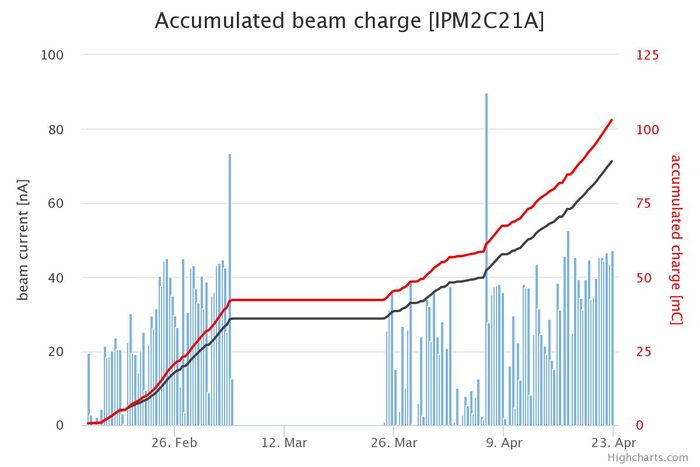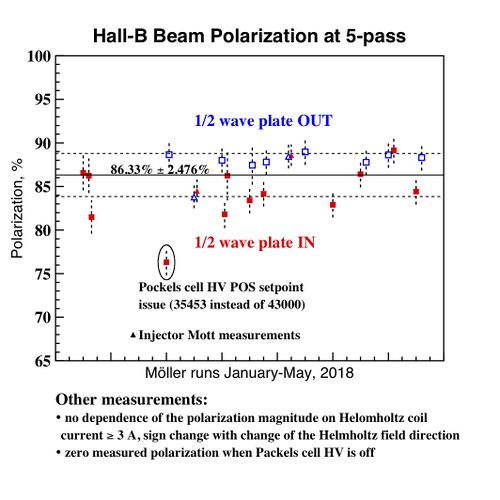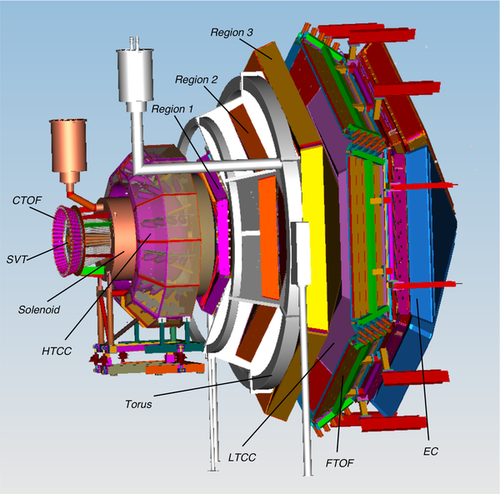Difference between revisions of "Run Group K"
| Line 235: | Line 235: | ||
* Trigger rate GUI | * Trigger rate GUI | ||
* Roc Rates (MB/s) GUI | * Roc Rates (MB/s) GUI | ||
| + | * Statistics DAQ rates GUI | ||
* Beam strip charts | * Beam strip charts | ||
* FT-Cal FADC scalers | * FT-Cal FADC scalers | ||
Revision as of 11:36, 29 November 2018
Shift ScheduleShift ChecklistHot CheckoutBeam Time Accounting
|
Manuals |
Procedures |
JLab Logbooks
|
If calling local numbers (with area code prefix 757) from the counting room dial 9+[last 7 digits]. To call other area codes dial 91+[10 digit number]
|
| |||||||||||||||||||||||||||||||||||||||||||||||||||||||||||||||||||||||||||||||||||||||||||||||
- Note, all non-JLab numbers must be dialed with an area code. When calling from a counting-house landline, dial "9" first.
- To call JLab phones from outside the lab, all 4-digit numbers must be preceded by 757-269
- Click Here to edit Phone Numbers. Note, you then also have to edit the current page to force a refresh.
Click Here to edit Phone Numbers. Note, you then also have to edit this page to force a refresh.
CLAS12 Run Group K, Fall 2018
Beam energy 7.5/6.5 GeV (4 pass)
Important: Document all your work in the logbook!
Remember to fill in the run list at the beginning and end of each run (clas12run@gmail.com can fill the run list)
RC: Annalisa D'Angelo
- (757) 575-7540
- 9 575 7540 from Counting Room
- annalisa@jlab.org
PDL: Eugene Pasyuk
- (757) 876-1789
- 9 876-1789 from Counting Room
- pasyuk@jlab.org
- Note 1: Be very mindful of the background rates in the halo counters, rates in the detectors, and currents in the SVT for all settings to ensure that they are at safe levels.
The integrated rates on the upstream counters have to be in the range 0-15 Hz (rates up 100 Hz are acceptable) and the rates on the midstream counters have to be in the range 10-20 Hz (acceptable up to 50 Hz) @50 nA. Counting rates in the range of hundreds of Hz may indicate bad beam tune or bleed-through from other Halls.
- Note 2: At the end of each run, follow the standard DAQ restart sequence
"end run", "cancel", "reset", then if the run ended correctly, "download", "prestart", "go". If the run did not end correctly or if any ROCs had to be rebooted, "configure", "download", "prestart", "go".
After each step, make sure it is complete in the Run Control message window. If a ROC has crashed, find which one it is and issue a roc_reboot command and try again. Contact the DAQ expert if there are any questions.
- Note 3: Nominal beam positions: 2C21A (X= - 0.37 mm, Y=0.33 mm) , 2C24A (X=0.2 mm, Y=0.3 mm) , 2H01 (X=1.1 mm, Y=-1.7 mm)
- Note 4: Do not turn OFF FTOF HVs, even during the beam tune with CW beam (turn off when doing a Moller run or if there is tuned/pulsed beam in the upstream beamline)
- Note 5: In case of a Torus and/or Solenoid Fast Dump do the following:
- Notify MCC to request beam OFF and to drop Hall B status to Power Permit
- Call Engineering on-call
- Make separate log entry with copies to HBTORUS and HBSOLENOID logbooks. In the "Notify" field add Ruben Fair, Probir Goshal, Dave Kashy and esr-users@jlab.org
- Notify Run Coordinator
- Turn off all detectors
- Note 6: When beam is being delivered to the Faraday Cup:
- the Fast Shut Down elements: Upstream, Midstream, Downstream, BOM, and Solenoid should always be in the state UNMASKED
- No changes to the FSD threshold should be made without RC or beamline expert approval
- Note 7: Any request for a special run or change of configuration has to be approved by the RC & documented
- Note 8: Carefully check the BTA every hour and run the script btaGet.py to print for you what HAS TO BE in BTA for this hour. Edit BTA if it is incorrect.
- Note 9: Reset CLAS12MON frequently to avoid histogram saturation.
- Note 10: Shift workers must check the occupancies! Use this tool to compare to previous runs: https://clas12mon.jlab.org/mon12/histograms/
- Note 11 Do not Turn OFF MVT HV: Instead go to 'Restore settings' from the MVT overview screen:
- SafeMode.snp for beam tuning and Moeller runs
- MV_HV_FullField.snp for full solenoid field
- MV_HV_MidField.snp wgeb solenoid < 4T
- NOTE 12 Check the vacuum periodically, make sure vacuum id not higher than 5e-5
- NOTE 13 Always reset the CFD threshold after all power off/on on the CND CAMAC crate
After the CAMAC crate (camac1) holding the CND CFD boards is switched off for any reason, it is mandatory to reset the associated thresholds typing the following command from any clon machine terminal: $CODA/src/rol/Linux_x86_64/bin/cnd_cfd_thresh -w 0
If this command is failing and the crate is not responding, reboot it as follows: roc_reboot camac1
- NOTE 14: As of 10/25, the issue of detector scalers being frozen and starting a new run has been resolved. Shift workers should anyway check routinely scalers to verify they update correctly and make a logbook entry if anomalies are observed after starting a new run.
- NOTE 15: To solve common SVT issues see https://logbooks.jlab.org/entry/3615766
Run Plan:(Updated: Nov. 28, 2018 at 9:43 a.m.)
Make sure to save ROC Rates (MB/s) GUI to logbook for each run together with beam screens and trigger GUI
Shift Worker Notes:
In case of other questions or uncertainties of what to do, call the RC
|
General Instructions:
Every Shift:
Every Run: Log screenshots of the following screens, and make sure at the moment you capture the screen the beam is ON
|
Webcams |
Manuals |
Epics on the web
|
Hall-B
Run lists |
Accelerator |
Bluejean meetings
|


